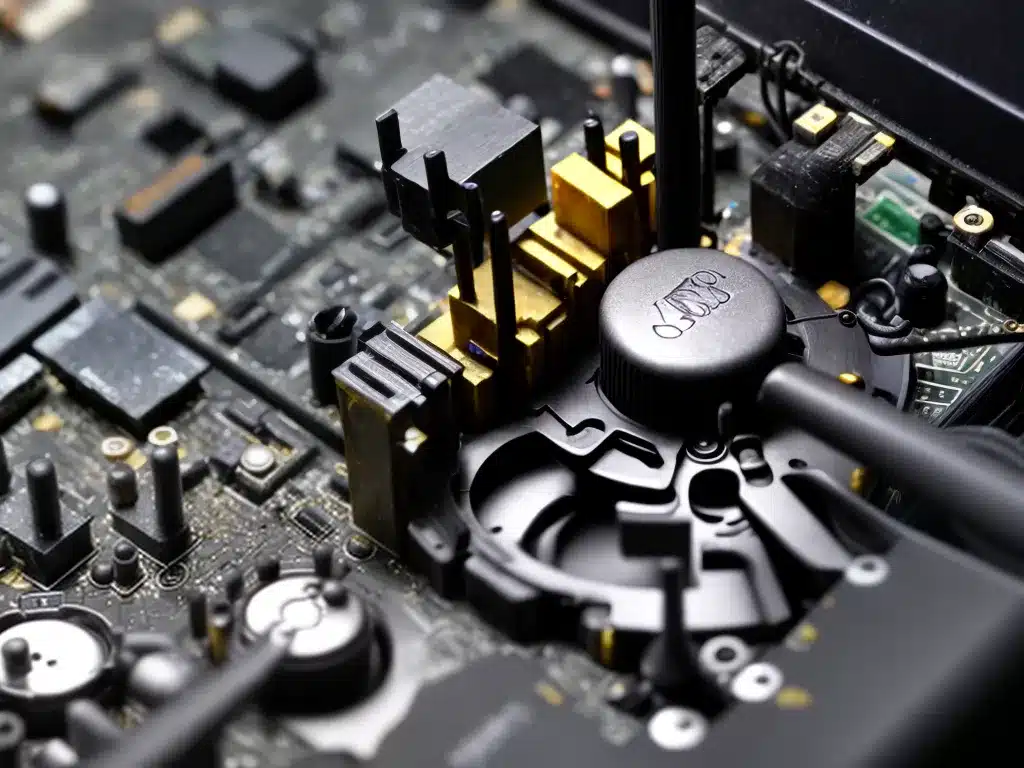
I’ve noticed my laptop has started making an irritating buzzing noise lately. As a laptop owner, hearing odd new sounds coming from your device can be worrying. In this article, I’ll explore the common causes of laptop buzzing noises and how to fix them.
Potential Sources of the Buzzing Noise
Laptops contain many electronic components packed into a small space. Any of these could potentially be the source of buzzing noises under certain circumstances. Here are some of the most likely culprits:
The CPU Fan
The CPU (central processing unit) contains the main processor chip that runs the laptop. This component generates a lot of heat. The CPU fan is used to cool the processor and prevent overheating.
Over time, the fan can become clogged with dust and debris causing the blades to vibrate against the accumulated dirt. This creates a buzzing sound. The fix is to carefully clean the fan with compressed air.
The Hard Drive
Hard drives store all your data and spin at high speeds. With use, the drive motors can start to wear out and vibrate excessively creating buzzing noises. Hard drive sounds tend to be more noticeable when accessing data.
If the buzz seems to be coming from the hard drive, it likely means the drive is failing. I would recommend backing up your data immediately and replacing the drive.
Loose Internal Components
Vibration from the fans and drives can cause internal cables, brackets, or components to become loose over time. Anything detached and not firmly secured can rattle around causing all kinds of buzzing or rattling noises.
Tightening loose screws or connections will often resolve this. Just take care not to damage delicate components when poking around inside the laptop.
Electrical Interference
Sometimes a buzzing noise can be caused by electrical interference rather than a mechanical issue. The high-speed components inside a laptop can emit electromagnetic signals that interfere with audio circuits creating sounds through the speakers.
Adjusting the placement of components or shielding wires may help mitigate this form of interference buzzing.
Other Possible Causes
Here are a few other less likely, but still possible sources of laptop buzzing to be aware of:
- Damaged speaker cones vibrating at certain frequencies
- A backlight or LED indicator with a dying transformer
- Vibrating panels or casing due to loose screws
- Dust buildup on fan blades or heatsinks
- Degraded power supply components
Carefully listening to the noise and when it occurs can help narrow down the location of the issue.
Preventing Laptop Buzzing Sounds
While buzzing noises are sometimes unavoidable over time, there are things you can do to minimize the chances:
- Use your laptop on flat, solid surfaces to reduce vibration
- Periodically clean out vents and fans to remove dust
- Avoid blocking vents or intakes while the laptop is on
- Handle the laptop gently to reduce component loosening
Following the manufacturer’s maintenance tips can also help maximize your laptop’s lifespan and minimize odd noises.
When to Take the Laptop to a Repair Shop
If you’ve tried troubleshooting and can’t resolve the buzzing on your own, it may be time to take it in for professional repair. Any noises that suggest a failing fan or hard drive need quick attention to avoid further damage.
Continuing to operate a laptop that’s making unusual noises can potentially lead to overheating and permanent component failure. It’s better to be safe than sorry!
Summary: Dealing with Laptop Buzzing
- The buzzing is typically caused by a degraded fan, failing hard drive, or loose internal components.
- Carefully cleaning vents, securing parts, or replacing worn components can often resolve buzzing.
- Preventative steps like regular maintenance help avoid noises.
- Seek professional repair if the buzzing persists and you can’t identify the cause.
- Ignoring the sounds risks allowing greater damage to occur.
I hope these troubleshooting tips help track down and silencethe buzzing laptop issue. Let me know if the buzzing persists after trying these fixes. Catching and addressing problems early is key to extending your laptop’s lifespan.












